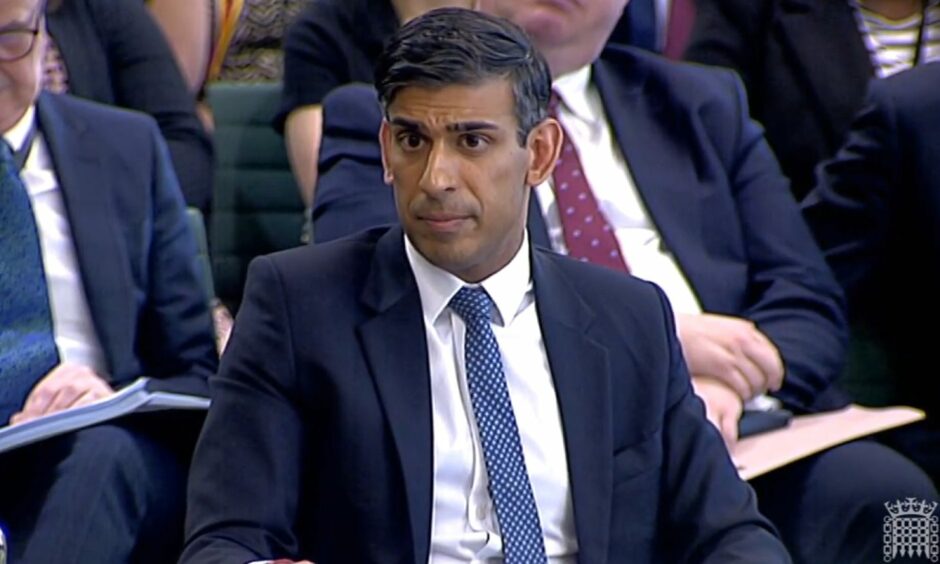
Rishi Sunak said he would delay or abandon environment policies if they led to direct costs on consumers, as senior Conservatives pressure his UK government to rethink its strategy following elections last week.
“We’re going to make progress toward net zero,” Sunak told reporters on Monday when asked about the 2050 target to effectively end net carbon emissions. “But we’re going to do that in a proportionate and pragmatic a way that doesn’t unnecessarily give people more hassle and more costs in their lives — that’s not what I’m interested in and prepared to do.”
Sunak’s governing Conservative Party has long been split over environmental issues, with the prime minister accused by some senior Tories of being uninterested in climate policy. But the counter view put forward by the climate-skeptic, right-wing of the party is gaining momentum, especially as the issue is increasingly fused with an inflation-fueled cost of living crisis.
Tory MPs including former Business Secretary Jacob Rees-Mogg have used last week’s election results to demand a rethink on net zero policies, including calling for a delay to the 2030 ban on sales of new fully petrol or diesel cars, and the end to green levies on energy bills. The party unexpectedly held Boris Johnson’s old seat of Uxbridge and South Ruislip, in a campaign dominated by the planned expansion of London’s ULEZ pollution control program.
That was initiated by Johnson when he was London mayor, but taking it into London’s outer districts is a key policy of his Labour Party successor Sadiq Khan. Since the Tories held onto the seat — narrowly — there have been calls in the party to scale back green promises as a tactic to win votes more broadly.
That’s despite the fact that ULEZ, which charges drivers of some older vehicles, is a program aimed at tackling air pollution rather than climate change.
The Uxbridge result — especially when compared with dramatic defeats for the Tories in two other districts last week — has amplified criticism of existing policies. The government must not treat environmental protection as a “religious crusade,” Levelling Up and Housing Secretary Michael Gove told the Telegraph newspaper over the weekend.
The ban on diesel and petrol cars is a case in point, given some Tories have long complained it puts too great a burden on businesses to meet the 2030 deadline. After minister Andrew Mitchell cast doubt on if the plan would be kept, Sunak’s spokesman told reporters nothing has changed — though he said it should be done in a “proportionate and pragmatic” way.
Still, any attempt to water down net zero policies could run up against the government’s own legally binding commitment to end the UK contribution to global warning by 2050, a government official said on condition of anonymity.
Ministers lost a landmark case last year when the High Court found an earlier version of its Net Zero Strategy was unlawful because it did not show how it would meet the emissions target in sufficient detail. To meet the 2050 target, the government is required by domestic law to set five-year carbon budgets 12 years in advance to chart how it intends to reach net zero. They set the total emissions permissible in successive five-year windows.
Diluting the cars policy would also raise questions about the government’s industrial strategy. The 2030 ban formed the backdrop of Tata Group’s decision to plow £4 billion into a new electric car battery plant in the UK last week.
The government has said it wants to lure more so-called gigafactories to Britain, but if it’s seen to backtrack on a policy that would accelerate the sale of electric vehicles, that’s likely to deter investors.
Even so, Conservative pressure to back away from the environment agenda is building on Sunak. That’s despite him being on the end of a dramatic resignation broadside from former climate minister Zac Goldsmith, who said the UK has “withdrawn our leadership on climate and nature” on his watch.
“Of course net zero is important to me,” Sunak said during a visit to the West Midlands. “I’m also cognizant that we’re living through a time at the moment where inflation is high. That’s having an impact on household and families’ bills. I don’t want to do anything to add to that, I want to make it easier.”
Recommended for you
